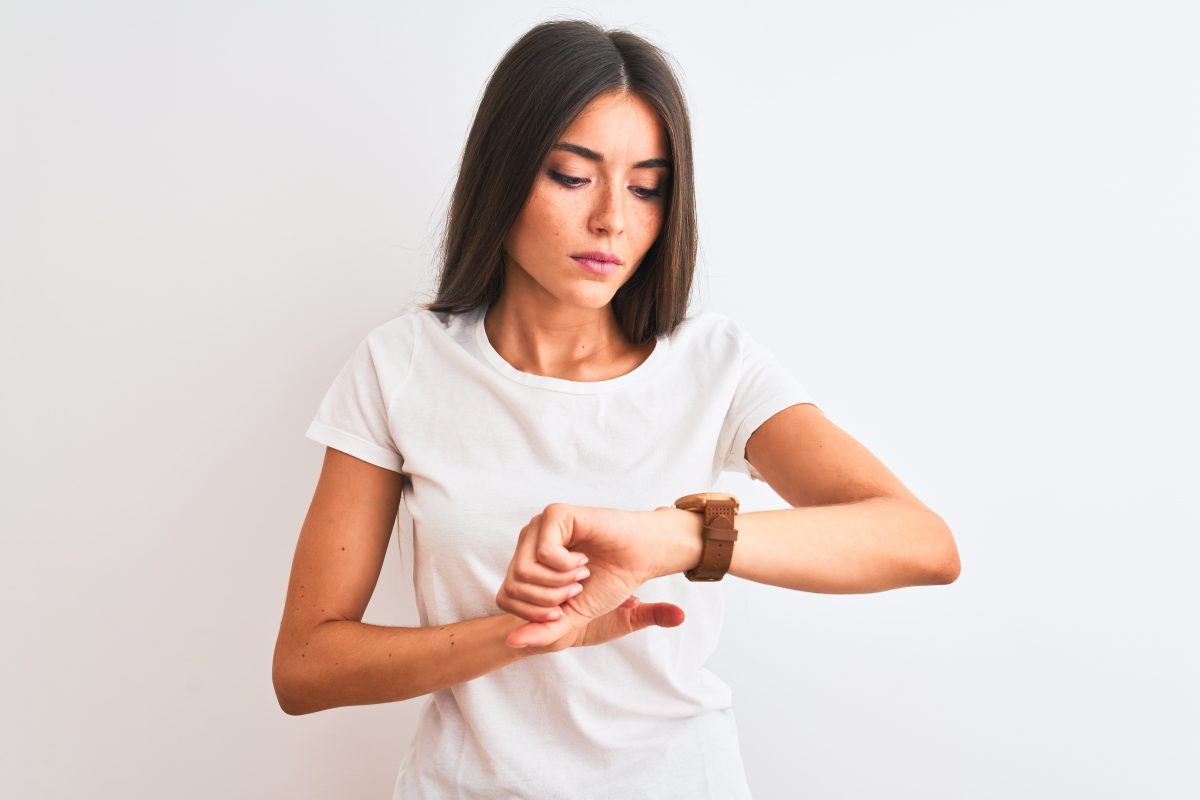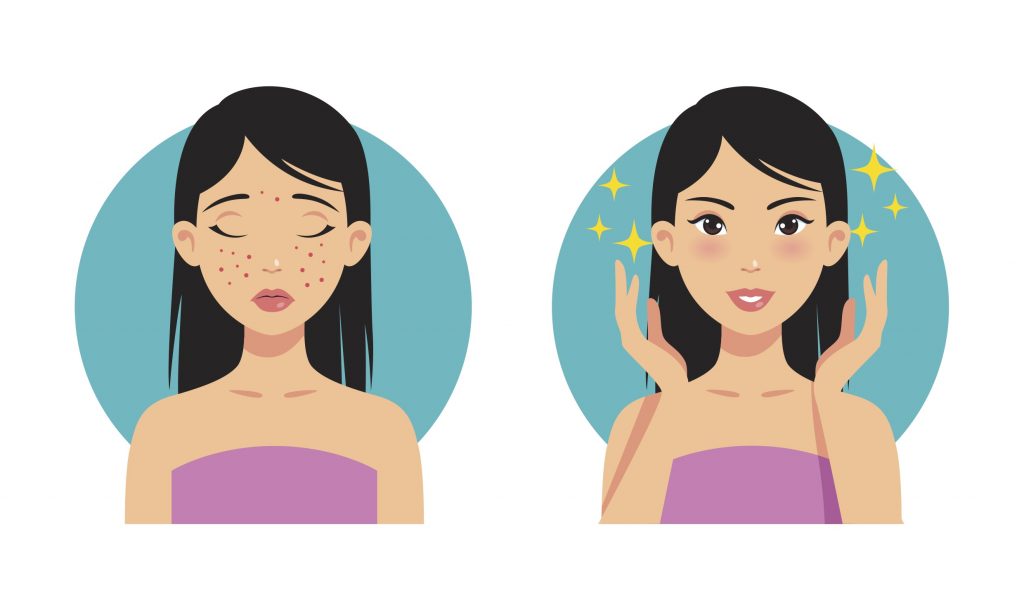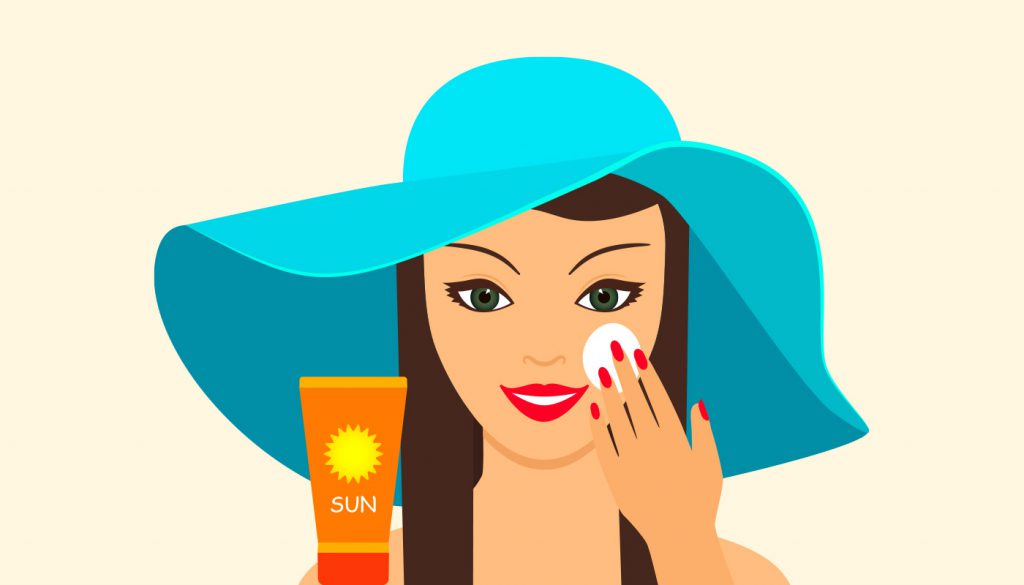Home » Featured Articles » How to get rid of pimples fast
How to get rid of pimples fast

“I don’t care how long it takes to get rid of my acne” – said no one ever!
You may not have been getting out of the house much recently but iso restrictions are easing and life is slowly getting back to ‘normal’. Now that you can finally step out for more than an essential trip to the shops, here’s some expert advice to get rid of pimples fast.
Dealing with pimples when self-isolating
We may have hit the snooze button on our social lives for a few months, but technology meant we were still ‘seeing’ a lot of each other.
Zoom, FaceTime, WhatsApp video chats and the many party apps keep us visually connected.
With more time on your hands during lockdown (for some people), it was a great opportunity to get on top of things or switch things up. Iso may be over but it’s never too late to make changes!
We’re not talking about Kondo-ing every cupboard or dyeing our hair blue, but simply checking that your skin care routine and acne treatment are playing nicely together to get rid of pimples as quickly as possible.
So, when you do emerge into the real world, you may be looking and feeling a lot better, especially as acne can have a real impact on your self-esteem.
Melbourne dermatologist and All About Acne member, Dr Mei Tam said acne is one of the most common skin conditions but it can make some people feel very alone.
“A person’s self-confidence can be one of the first casualties of acne,” she said.
“Even during self-isolation, staying in contact with people who have our best interests at heart, including healthcare professionals, can be really helpful if you’re feeling a bit anxious or unsure of things.”
Do the things that make you feel better and if taking control of acne is one of them, here are a few tips from the experts which may just help you get rid of pimples as fast as possible.
A quick fix for acne

It may be what everyone with acne wants but the acne quick fix isn’t so simple.
Exactly how long it’s going to take for those spots to disappear depends on the type of acne you’ve got as well as how you’re managing it.
In mild cases that can mean a couple of weeks, but if you have severe or cystic acne, it can take a few months.
Don’t despair!
“The upside is with the right treatment you’ll see encouraging results along the way,” says Dr Tam.
Is your skin care routine acne friendly?
Regardless of what type of acne you have, the right skin care routine can make a huge difference and if you have mild acne, it may be all you need.
“A good acne skin care routine is one that you’ll stick to and that’s usually a simple one – cleanse, treat, protect,” said Dr Tam.
There’s no shortage of skin care products which can make finding a suitable one for acne prone skin a bit daunting so enlist some expert help.
Your local pharmacist is a good starting point and pharmacies are still open!
“Using the wrong skin care products can make your acne worse and take longer to get rid of pimples, regardless of the price tag. A high price tag does not equate to better results,” explained Dr Tam.
Some of the best skin care products are the least expensive.
Look for the words ‘non-comedogenic’ which means it won’t block pores, ‘non-acnegenic’ or ‘oil free’.
Cleansers containing salicylic acid can also be helpful and possibly all you need if you have mild acne. Just remember to tell your pharmacist or doctor before combining this with any other acne medication.
Attacking different causes of acne

Bacteria, oil, clogged pores, hormones and inflammation are all potential causes of acne. Different treatments target each of these causes.
- Benzoyl peroxide decreases skin bacteria (P.acnes). These are typically available over-the-counter and are used to treat mild acne. Be careful of bleaching towels, clothes and bed linen when using it.
- Salicylic acid unclogs pores and dampens inflammation. It can be found in cleansers and moisturisers for acne-prone skin.
- Retinoids (synthetic vitamin A) creams and gels unclog pores, reduce oiliness and prevent new blockages from occurring. These require a doctor’s prescription.
- Isotretinoin is a type of oral retinoid used for severe and treatment resistant acne. It works on reducing oil production, clogged pores and inflammation
- Antibiotics (both oral and topical) deal with inflammation and control P. acnes
- Certain contraceptive pills are used to treat hormonal acne, as is spironolactone.
There are also fixed combination products which combine two ingredients into one product making them even more effective.
A new treatment that combines the clindamycin (antibiotic) with tretinoin (retinoid) is now available in Australia.
“The good news for people with acne is that there are many treatments so there’s every reason to stay positive about finding a treatment that will work for you,” says Dr Tam.
“Speak to a healthcare professional to get a tailored approach for treating your acne. This will ensure that you’re receiving the most appropriate treatment for the fastest response time. They will give you many tips to get the most out of your treatment.”
This may mean lip balms for treatments that cause dry lips, sunscreen for treatments that make your skin more sun sensitive as well as critical advice such as taking contraception when on specific acne treatments.

Give acne treatment at least four weeks to work
Have you given your treatment time to work or have you tried three treatments in three weeks?
Whether it’s an over-the-counter treatment from pharmacy or a prescription treatment from your doctor, it’s important to stick with your treatment and give it enough time to do its job.
“That doesn’t mean putting up with nasty side effects. If that happens, talk to your doctor who can adjust the dose or change your treatment,” explains Dr Tam.
“Acne affects each person differently and treatment responses will also vary. A friend may have seen improvements with their acne within three weeks while you’ve seen nothing, but don’t give up.”
“Generally, you should notice improvements within four to six weeks with most treatments but allow up to 12 weeks for the treatment to work more thoroughly.”
“If nothing has changed by six weeks, it’s probably time to adjust the treatment by increasing the potency of creams or dosages, adding another treatment or changing treatment all together. Your healthcare professional will help you make these changes after discussion.”
For any acne treatment to work you need to use it as advised. More is not better and it can aggravate the acne rather than improve it which means taking longer for pimples to disappear.
Stepping out

Reviewing your skin care products and routine, checking you’ve got the right acne treatment and getting advice from the experts will help you get rid of pimples as fast as possible.
Just something else to feel better about when you’re catching up with friends instead of your lounge and Netflix!
